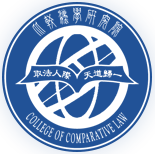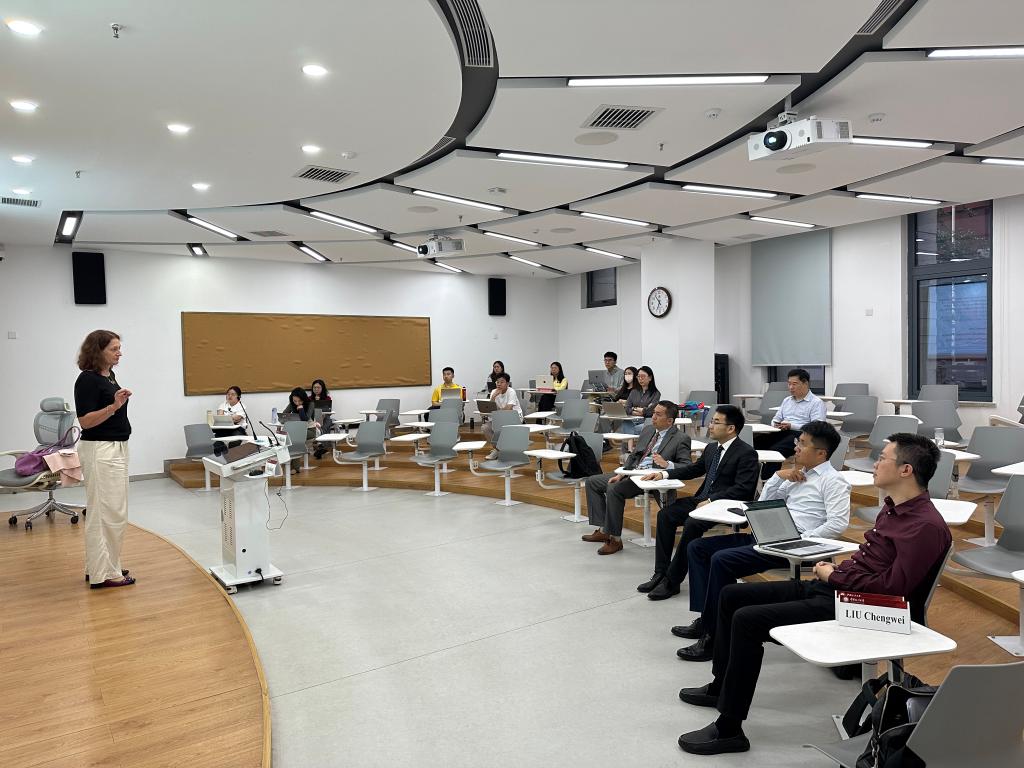The College of Comparative Law and the School of Humanities and Law of the China University of Petroleum (East China) jointly hosted the Symposium on the Innovation of Theory and Practice of Supervision Law in Qingdao on 29 June, 2021. This conference was a seminar before the conclusion of the National Social Science Fund of China’s major project the Research on the Theoretical Construction, Institutional Innovation and Practical Operation of State Supervision with Chinese Characteristics, which is chaired by Dean of the College Prof. Xie Zhiyong.

More than 40 experts and scholars from 10 institutions including Tsinghua University, Renmin University of China, Shanghai Jiao Tong University, China University of Political Science and Law, Shandong University, Yunnan University, Southwest University of Political Science and Law, East China University of Political Science and Law, Qingdao University and China University of Petroleum attended the conference. Dean of the School of Humanities and Law of the China University of Petroleum (East China) Prof. Wang Xuedong moderated the opening ceremony, and the Chair of its School Council Yao Chengjun presented the opening remarks.
Xie Zhiyong gave a thematic report on the progress of the project, the existing achievements, the problems in theory and practice, and the issues that need to be focused on and solved in the follow-up.
The first session focused on the Innovation, Problems and Evaluation of Its Effectiveness of Supervision Theory and Practice. It was chaired by Prof. Yu Lingyun from the School of Law of Tsinghua University.

Prof. Ye Bifeng from the Shanghai Jiao Tong University, referring to administrative acts, litigation acts and legislative acts of the NPC, pointed out that major systems are supported by basic concepts, so the analogy to the study of supervision system should also be devoted to the study of supervision theory and internal logic, which is of long-term and guiding significance. He also put forward the corresponding problems and countermeasures in specific aspects such as supervision object, standard, basis, due process and the relationship between inspection and supervision.
Prof. Wei Xiaona from the Renmin University of China pointed out that after the reform of the supervisory system, a “dual-track” criminal procedure has been formed that the handling procedures are different for the cases self-investigated by procuratorate and the cases that the supervisory organ have jurisdiction over. She explained that the management of the persons involved in cases and the governmental officials exercising public power to enforce jurisdiction over other non-duty crime also present the dual-track pattern. She also put forward the problems of the orientation of the procuratorial organ’s intervention in advance, the responsibility bearing and the due process in the connection of supervision and inspection.
Prof. Xiao Jinming from the Shandong University (Weihai) pointed out that the nature of supervision is not exactly clear and that there are certain problems in distinguishing and linking up the integrated work of the office of the Discipline Inspection and Supervision Office. He believed this calls for a major theoretical breakthrough in the study of supervision law.
Prof. Yang Linhong from the Yunnan University said that the lack of public understanding of the supervision law hindered its development and suggested that the supervision law should be treated as an independent discipline. Prof. Mou Xiankui from CUPL, on the other hand, suggested that AI could be used to share the pressure of the supervisory staff, and that public participation mechanisms could be strengthened by selecting people supervision from society, so as to promote integrity and good governance. Prof. Liu Fei from CUPL stressed that the supervision of the supervisory authorities should be based on the certainty of the supervisory authorities and that the supervisory procedures should be practical.
The second module focused on the Improving of the Supervisory Committee’s Supervision and Control System. It was chaired by Professor Cao Liu, Executive Director of the Research Centre for National Supervision and Anti-Corruption of CUPL.

Prof. Shang Wenjiang, Vice-Chancellor of the Southwest University of Political Science and Law, claimed that the theoretical and practical problems of supervision should be observed from a high vantage point of national governance, and that supervision costs should be considered in order to coordinate with the need for supervision. Prof. Men Zhongjing from Shandong University said that there may be differences between the definition of “supervision and restriction” in political documents and the constitution, and that how these differences are explained and resolved is crucial.
On the other hand, A/Prof. Lin Hua from CUPL put forward the idea of perfecting the supervision of the supervision organs under the framework of the existing supervision law. Lin thought it is necessary to require ombudsmen to pass the examination for the legal profession. A/Prof. Niu Chuanyong from Qingdao University expressed his opinions on the orientation of supervisory organs and the connection between supervisory law and criminal procedure law. A/Prof. Sun Ning from Qingdao University believed that there is a cross-function between administrative sanction and punishment, which is difficult to distinguish. Dr. Zhao Yingnan from the College proposed a distinction between the concepts of supervision, which is flexible and external, and Restriction, which is rigid and internal. Dr. Wang Jing from the East China University of Political Science and Law introduced the Spanish ombudsman system that in the context of serving administration, the motivation to mobilize power and the prevention of corruption are important issues.
The third session focused on the Development Trend of Supervision Theory and Practice. The experts and scholars presented their opinions from their own research interests.
Xie Zhiyong summarized the discussion and pointed out that the theoretical and practical issues of supervision cannot be answered in a short period of time, and that this symposium is a re-focus and conciseness of the existing supervision system and it problems. He believed that this time’s multi-disciplinary and multi-field study would inspire the direction and ideas for the groups’ follow-up research.

10 postgraduate students from CUPL and 10 from the China University of Petroleum (East China) also participated in the seminar. It realized the interaction between scientific research and teaching, forming a good atmosphere in which scientific research drives the training of talents.












